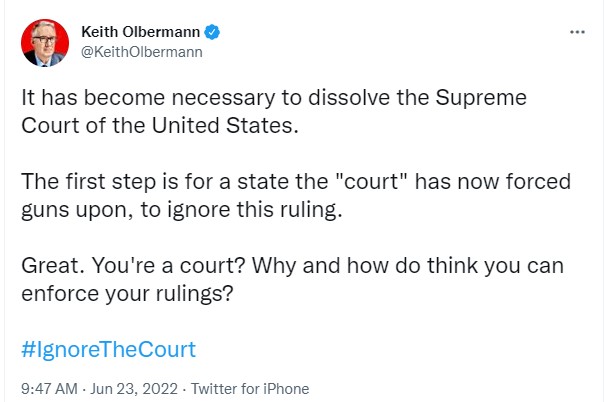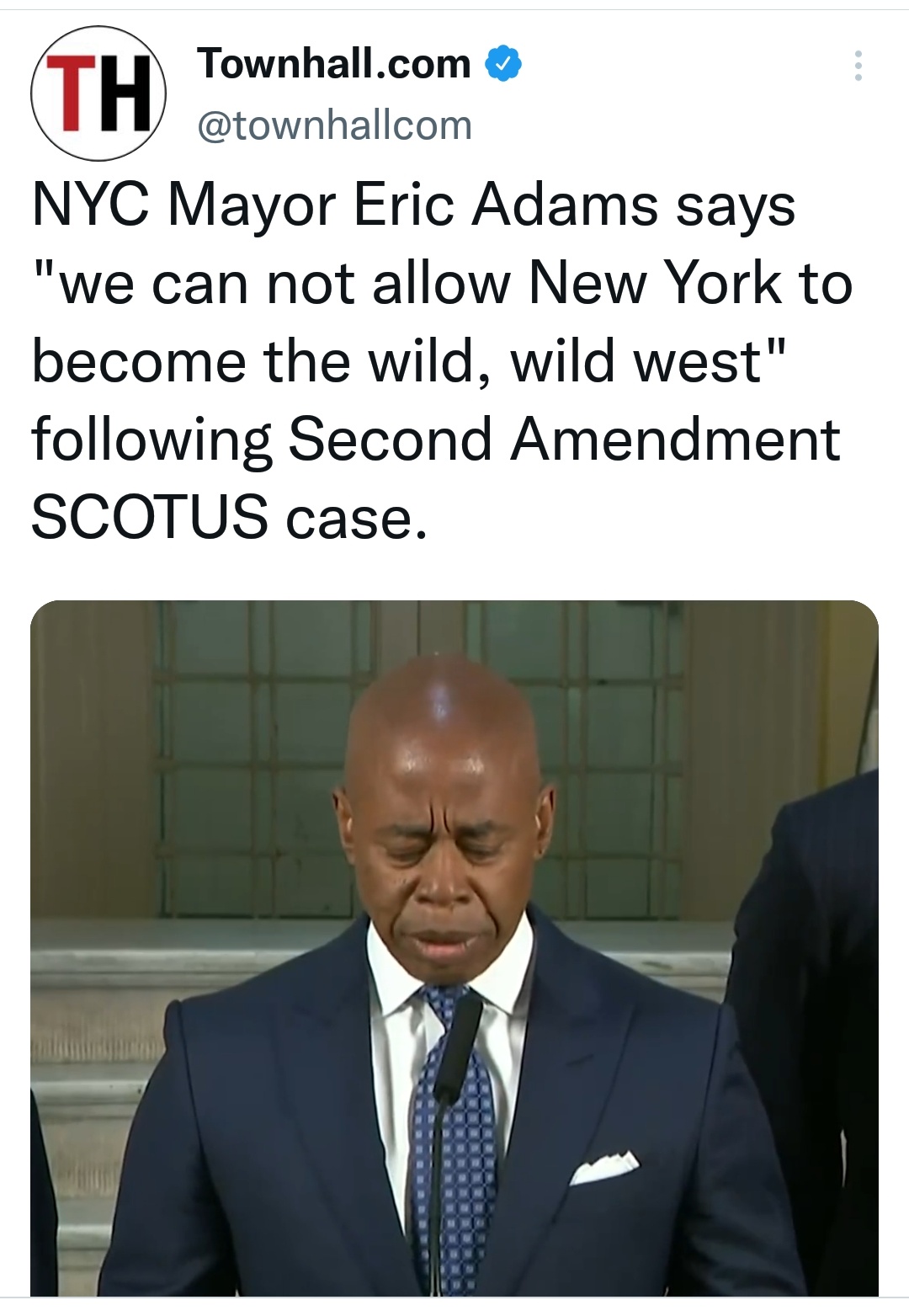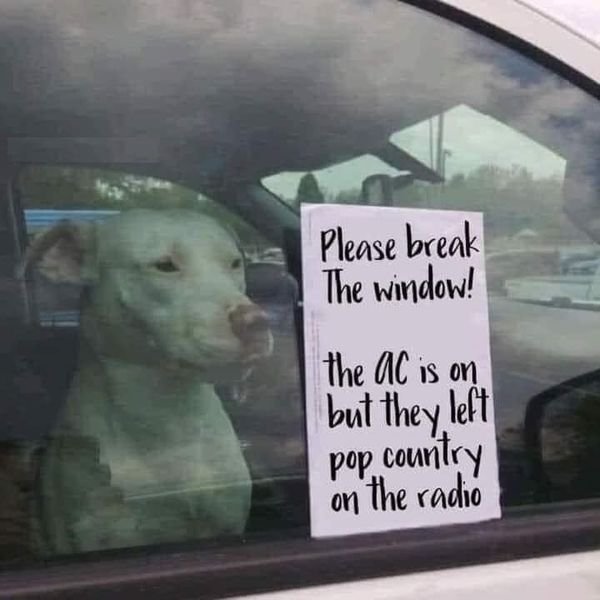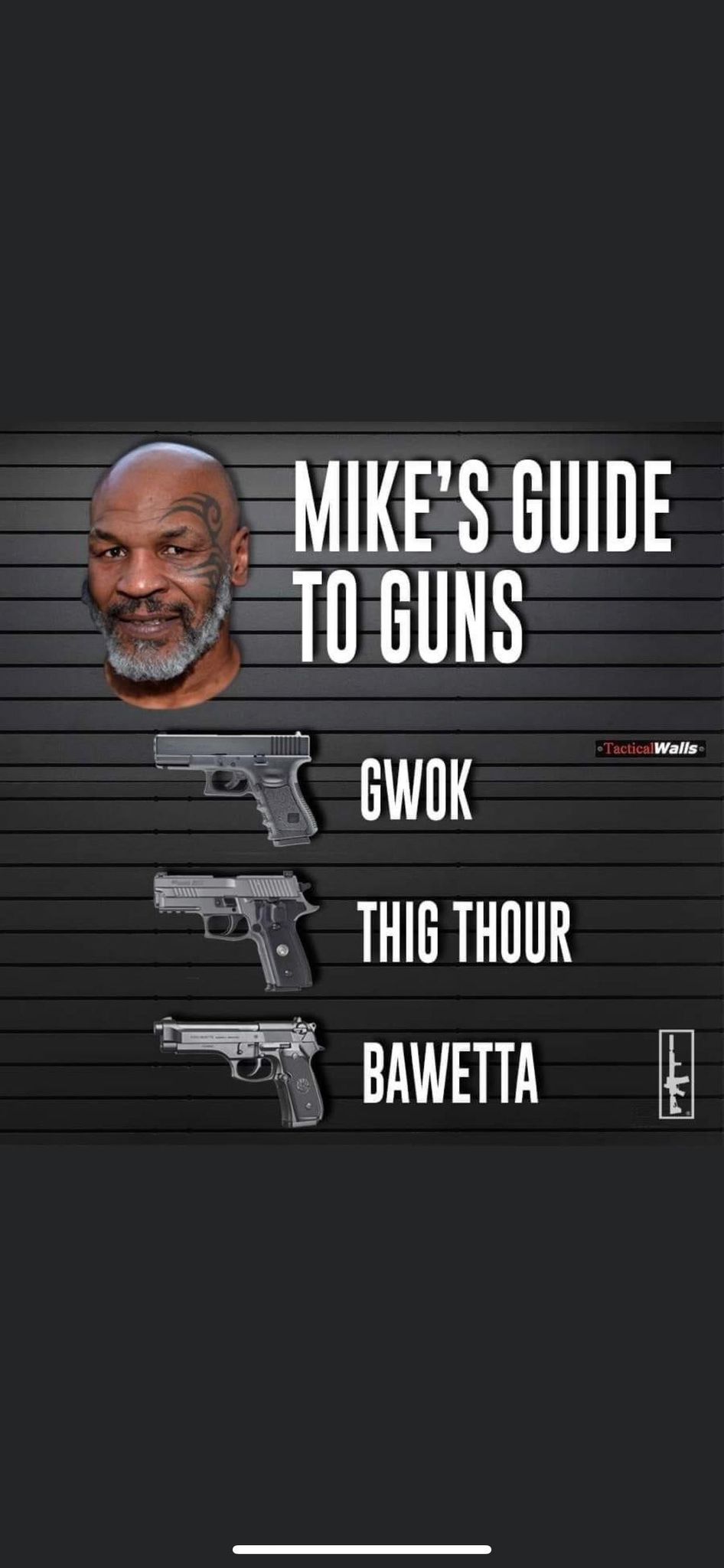NYSPRA v Bruen: Initial and very IANAL thoughts
As usual, here is the text of SCOTUS NYSRPA v Bruen so you can read it yourself.
You may have already read in other blogs or social media some of the juicy parts, especially the use of Justice Thomas of Dred Scott which is sending the Antis into deep tailspins without actually realizing they are defending the same racist principle used in such disgusting decision.
Here are some of the parts that I have read (so far) that have struck me as very important and/or revealing (Obligatory IANAL warning is hereby included):
In Heller and McDonald, we held that the Second and Fourteenth Amendments protect an individual right to keep and bear arms for self-defense. In doing so, we held unconstitutional two laws that prohibited the possession and use of handguns in the home. In the years since, the Courts of Appeals have coalesced around a “two-step” framework for analyzing Second Amendment challenges that combines history with means-end scrutiny. Today, we decline to adopt that two-part approach. In keeping with Heller, we hold that when the Second Amendment’s plain text covers an individual’s conduct, the Constitution presumptively protects that conduct. To justify its regulation, the government may not simply posit that the regulation promotes an important interest.
And also:
If the last decade of Second Amendment litigation has taught this Court anything, it is that federal courts tasked with making such difficult empirical judgments regardingfirearm regulations under the banner of “intermediate scrutiny” often defer to the determinations of legislatures. But while that judicial deference to legislative interest balancing is understandable—and, elsewhere, appropriate—it is not deference that the Constitution demands here. The Second Amendment “is the very product of an interest balancing by the people” and it “surely elevates above all other interests the right of law-abiding, responsible citizens to use arms” for self-defense. Heller, 554 U. S., at 635. It is this balance—struck by the traditions of the American people—that demands our unqualified deference.
The way I am reading this part is “Screw ‘government interest’ it is the right of the Individual who must be respected and find in favor of. SCOTUS was not happy with what lower courts were doing to bypass their intentions in the previous cases and slapped them hard pointing out what they are actually supposed to do. And if there were any doubt on the above:
Moreover, Heller and McDonald expressly rejected the application of any “judge-empowering ‘interest-balancing inquiry’ that ‘asks whether the statute burdens a protected interest in a way or to an extent that is out of proportion to the statute’s salutary effects upon other important governmental interests.’” Heller, 554 U. S., at 634 (quoting id., at 689–690 (BREYER, J., dissenting)); see also McDonald, 561 U. S., at 790–791 (plurality opinion) (the Second Amendment does not permit—let alone require—“judges to assess the costs and benefits of firearms restrictions” under means-end scrutiny). We declined to engage in means-end scrutiny because “[t]he very enumeration of the right takes out of the hands of government—even the Third Branch of Government—the power to decide on a case-by-case basis whether the right is really worth insisting upon.” Heller, 554 U. S., at 634. We then concluded: “A constitutional guarantee subject to future judges’ assessments of its usefulness is no constitutional guarantee at all.”
I believe that is called a firm slap in the legal buttocks of the courts that have played loose with the Second Amendment.
This is interesting. At first looks like a gimme to the Governments to create Gun Free Zones, but it actually changes into a warning:
We therefore can assume it settled that these locations were “sensitive places” where arms carrying could be prohibited consistent with the Second Amendment. And courts can use analogies to those historical regulations of “sensitive places” to determine that modern regulations prohibiting the carry of firearms in new and analogous sensitive places are constitutionally permissible.
Although we have no occasion to comprehensively define “sensitive places” in this case, we do think respondents err in their attempt to characterize New York’s proper-cause requirement as a “sensitive-place” law. In their view, “sensitive places” where the government may lawfully disarm law-abiding citizens include all “places where people typically congregate and where law-enforcement and other public-safety professionals are presumptively available.” Brief for Respondents 34. It is true that people sometimes congregate in “sensitive places,” and it is likewise true that law enforcement professionals are usually presumptively available in those locations. But expanding the category of “sensitive places” simply to all places of public congregation that are not isolated from law enforcement defines the category of “sensitive places” far too broadly. Respondents’ argument would in effect exempt cities from the Second Amendment and would eviscerate the general right to publicly carry arms for self-defense that we discuss in detail below. See Part III–B, infra. Put simply, there is no historical basis for New York to effectively declare the island of Manhattan a “sensitive place” simply because it is crowded and protected generally by the New York City Police Department.
I said many years ago that the banning the carrying of a concealed weapon meant that the government believed your life was worth less the moment yu stepped out of domicile, the same way a new car lost 30% of its sticker price the second you drove it off the lot. It simply did not make sense that you could not defend yourself. The Court once again confirms this:
Moreover, confining the right to “bear” arms to the home would make little sense given that self-defense is “the central component of the [Second Amendment] right itself.” Heller, 554 U. S., at 599; see also McDonald, 561 U. S., at 767. After all, the Second Amendment guarantees an “individual right to possess and carry weapons in case of confrontation,” Heller, 554 U. S., at 592, and confrontation can surely take place outside the home. Although we remarked in Heller that the need for armed self-defense is perhaps “most acute” in the home, id., at 628, we did not suggest that the need was insignificant elsewhere. Many Americans hazard greater danger outside the home than in it. See Moore v. Madigan, 702 F. 3d 933, 937 (CA7 2012) (“[A] Chicagoan is a good deal more likely to be attacked on a sidewalk in a rough neighborhood than in his apartment on the 35th floor of the Park Tower”). The text of the Second Amendment reflects that reality.
I am still reading and probably take me a long while to digest the whole thing. But there is one more quote I want to share and goes to those who loudly use Gun Bans imposed in towns like Tombstone as example of the irrelevance or lack of weight of the Second Amendment:
Finally, respondents point to the slight uptick in gun regulation during the late-19th century. As the Court suggested in Heller, however, late-19th-century evidence cannot provide much insight into the meaning of the Second Amendment when it contradicts earlier evidence. In addition, the vast majority of the statutes that respondents invoke come from the Western Territories. The bare existence of these localized restrictions cannot overcome the overwhelming evidence of an otherwise enduring American tradition permitting public carry. See Heller, 554 U. S., at 614. Moreover, these territorial laws were rarely subject to judicial scrutiny, and absent any evidence explaining why these unprecedented prohibitions on all public carry were understood to comport with the Second Amendment, they do little to inform “the origins and continuing significance of the Amendment.” Ibid.; see also The Federalist No. 37, p. 229. Finally, these territorial restrictions deserve little weight because they were, consistent with the transitory nature of territorial government, short lived. Some were held unconstitutional shortly after passage, and others did not survive a Territory’s admission to the Union as a State. Pp. 58–62.
Take your time, add a beverage of your choice and do read the whole thing.
And Keith Olbermann confirms why we have a Second Amendment

The problem he firmly believes that Might Makes Right without his side actually having it. Then again, he has no skin in the game and probably believes some low-paid cop will put his ass on the line for what he believes in the comfort of his plush home.
That is a seriously stupid mistake.
New York Mayor bemoans SCOTUS NYSRPA v. Bruen with a stupid comment.

It seems to me that New York City already behaves like the worst parts of the Wild West. Rather than lassoing some poor sucker and drag him through town behind a galloping horse, he just gets tossed in front of the subway. If you have the wrong color, you get pummeled by gangs or if you attend the wrong church, they will come after your congregation. And are the criminals punished? Nope. A wink of the legal eye and they are released while the lawmen are pretty much into “fuck it, who gives a damn” mode and hide at the local cantina, bodega or bagel shop.
Will there be blood spilled on the streets? probably and hopefully some imbecilic a-hole who did not get the memo after New Yorkers are finally carrying for self-defense. That kind of hemorrhage I do believe necessary till lessons are learned.
Paul Clement Leaves Firm to Open Boutique Firm
For those of you that don’t know, Paul Clement is the super star lawyer that just won NYSR&PA, Inc v. Bruen. He has been around for a long time fighting for conservative ideals on a constitutional basis.
He fought to “remove immigration protections from so-called Dreamers”.
The firm he use to be with was Kirkland & Ellis. After today’s SCOTUS announcement, Kirkland & Ellis issued a statement that they will no longer represent clients in Second Amendment matters.
It sounds like Clement heard this or knew this was going to happen so he and a former Kirkland partner, Erin Murphy, left to form their own firm.
This guy has been fighting woke culture and the gun rights infringers for a very long time. He left his prior firm when they with drew from a case involving same sex marriage.
I’m glad he is still here with us, fighting the good fight.
Bloomberg Law: Clement to Open Boutique After Kirkland Withdraws From Guns
Finding Common Ground
I hope you have all seen the cake analogy of gun rights. Where compromise always consists of us giving up some more of our gun rights in return for keeping some of ours. We never seem to get any back.
Beto O’Rourke is out there talking about “Finding Common Ground.” The democrat talking point is “balancing responsible gun ownership with public safety”.
All of them consist of ignoring just a little bit of the second amendment “for the common good”, “for public safety”, “to save just one life”.
My state has constitutional carry. I have a CCW as well. This allows me to travel to a few more states without problems as those states recognize my CCW. When we talk about common ground, how about allowing my permit to allow me to carry in every state and D.C.?
How about we recognize that short barreled rifles were added to the NFA to keep people from avoiding the tax by claiming a pistol was a rifle? How a person can end up arrested because it was 15.99inches instead of 16.00 inches long.
How about removing suppressors from the NFA? The fact that I can buy a stainless steel suppressor for a 64mm pipe for $200 installed but it is $200 just for the tax stamp and another $600+ for the actual can?
We know that we can get suppressors down around the $30 mark because people sell “solvent traps” that can be converted into a suppressor.
Common ground? I’d love to find common ground with the gun infringers. Unfortunately there seems to be a huge gulf between us that they are unwilling to cross.
Former Rep. Beto O’Rourke (D-Texas) said in an interview broadcast on Sunday that Texas needs to find “common ground” on gun control by respecting the Second Amendment while also requiring safety measures on firearms.
O’Rourke highlighted moderate gun control measures that both Republican and Democratic residents of his state can get behind, some of which appear in a bipartisan Senate plan considered this week in light of the Uvalde shooting.
“Universal background checks, red flag laws, safe storage laws — these are things that most Texans agree with,” O’Rourke said.
—O’Rourke: Time to find ‘common ground’ on gun control









